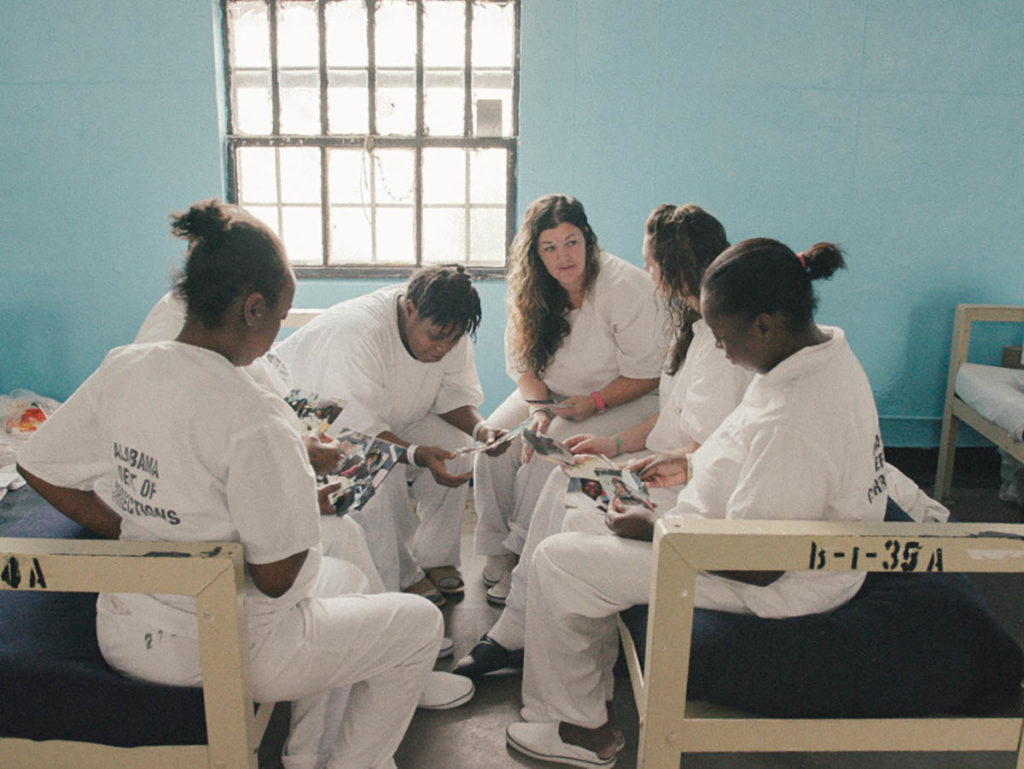Alum Sheldon Named Guggenheim Fellow, New Doc Looks at Incarcerated Pregnant Women

By David Ertischek ‘01
Emmy-winning, Oscar-nominated documentarist Elaine McMillion Sheldon, MFA ’13 has a lot going on.
Sheldon was recently named a Guggenheim Fellow, and the West Virginia native is using the grant to make King Coal, a hybrid documentary that looks at how the coal industry is entrenched in people’s sense of identity in Appalachia. In the film she’s documenting cultural events, such as the Annual Pennsylvania Bituminous Coal Show.
“Another form of the essay is if coal had never been discovered … what would be the identity of Appalachia,” said Sheldon. “The regions that are coal mined are some of the poorest in the country. The culture and iconography of coal still exists today and many politicians tap into it. Coal miners are just trying to make a living and are often made into political pawns. It’s reimagining a different future.”
“There’s magical realism and fiction in this piece that my other pieces don’t,” said Sheldon. “I wanted support to go out on a limb and try something new in my artistic process.”
Sheldon said applying for the Guggenheim Fellowship is something she always wanted to do. She knows several other recipients, and has exchanged congratulatory emails. The hope is there will be an official ceremony come fall.
And her newest film will premiere just in time for Mother’s Day. But the short film’s setting is one of the last places a mother would want to spend time.
Tutwiler shows what it’s like to be incarcerated and pregnant at the Julia Tutwiler Prison for Women in Alabama.
“In Tutwiler we really focus on the doula program. The doulas are volunteers who go into the prison to support the women,” said Sheldon, MFA ’13. “I am drawn to topics that focus on a part of a regional or national crisis. Not looking at it as a crisis, but looking at the unsung heroes going against great forces.”

The documentary will be digitally released by Frontline and The Marshall Project on May 7, and air on The World Channel as part of its America ReFramed series on May 19.
Sheldon’s previous works include two Netflix documentaries, Heroin(e) and Recovery Boys, which look at America’s opioid crisis. The former was nominated for a 2018 Academy Award and won the 2018 Emmy Award for Outstanding Short Documentary.
She previously collaborated with Frontline and NPR for Coal’s Deadly Dust, which investigated the rise of black lung disease among coal miners, and the failure of the government to protect miners. It was nominated for a 2020 Writers Guild of America Award.
Sheldon said met an “incredible cohort of collaborators” while at Emerson, including Jeff Soyk, MFA ’13. The duo worked together on a joint thesis project, Hollow, a documentary that looked at rural America through the eyes of West Virginians. It received Peabody and Emmy nominations.
Her next move is literally a move, as she will be an assistant professor of cinema studies at the University of Tennessee’s School of Art. She will also continue to tell important stories of challenges to the human spirit.
“I am drawn to topics that affect people that generally are covered in the surface headline driven way — and just try to go deeper in those,” said Sheldon. “I want to find the people who are working behind the scenes to make it better.”
Categories